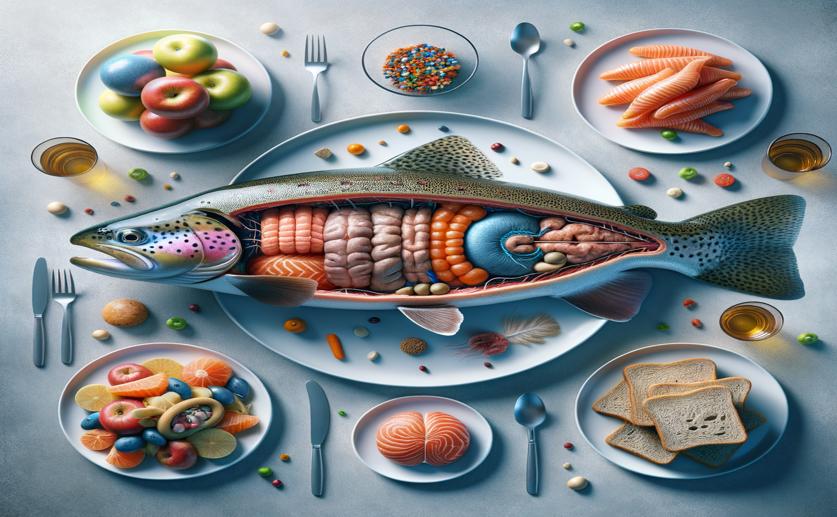
How Fasting and Refeeding Affects Trout Gut Health
Jim Crocker
18th April, 2024

Image Source: Natural Science News, 2024
Key Findings
- In a study at Université de Pau & des Pays de l’Adour, rainbow trout diets with yeast extract showed potential gut health benefits
- Short fasting periods followed by refeeding can affect gene expression related to trout's immune and stress responses
- The study suggests that dietary components, like yeast extract, could enhance fish health in aquaculture practices
References
Main Study
1) Gut physiology of rainbow trout (Oncorhynchus mykiss) is influenced more by short-term fasting followed by refeeding than by feeding fishmeal-free diets
Published 16th April, 2024
https://doi.org/10.1007/s10695-024-01339-0
Related Studies
2) Short- and long-term effects of a dietary yeast beta-glucan (Macrogard) and alginic acid (Ergosan) preparation on immune response in sea bass (Dicentrarchus labrax).
Journal: Fish & shellfish immunology, Issue: Vol 18, Issue 4, Apr 2005
3) Physiological responses to starvation in the European eel (Anguilla anguilla): effects on haematological, biochemical, non-specific immune parameters and skin structures.
4) Effects of prolonged fasting on levels of metabolites, oxidative stress, immune-related gene expression, histopathology, and DNA damage in the liver and muscle tissues of rainbow trout (Oncorhynchus mykiss).
5) Fasting and refeeding cause rapid changes in intestinal tissue mass and digestive enzyme capacities of Atlantic salmon (Salmo salar L.).
Journal: Comparative biochemistry and physiology. Part A, Molecular & integrative physiology, Issue: Vol 141, Issue 4, Aug 2005



 6th April, 2024 | Jim Crocker
6th April, 2024 | Jim Crocker